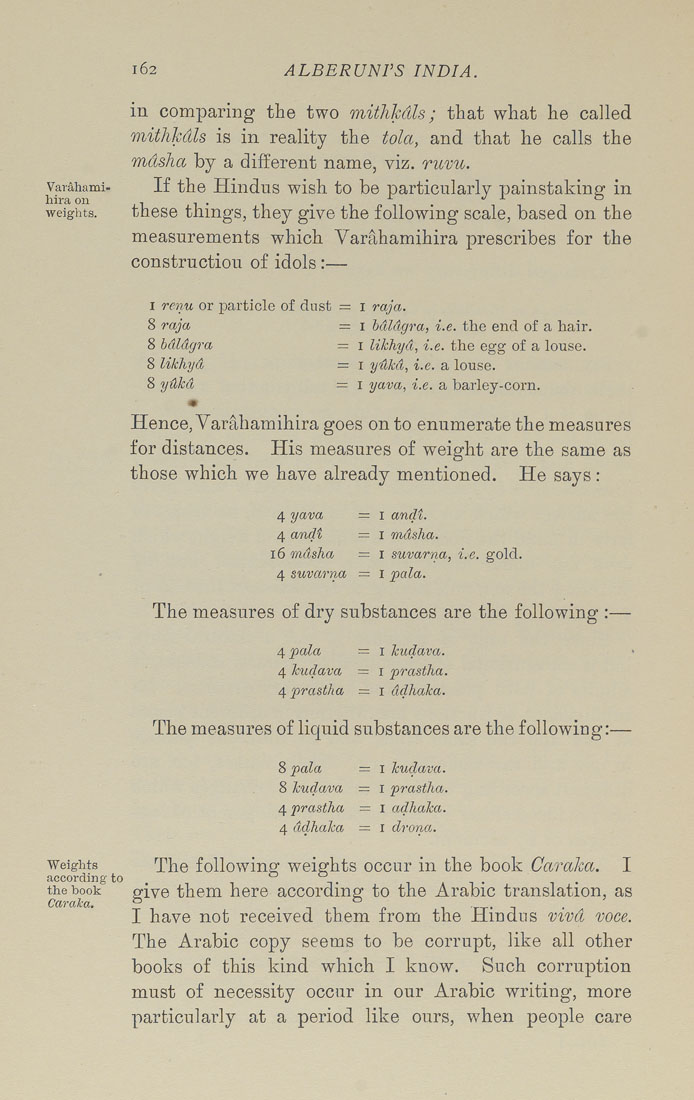Bīrūnī, Muḥammad ibn Aḥmad, Alberuni's India (v. 1)
(London : Kegan Paul, Trench, Trübner & Co., 1910.)
|
||
|
|
|
|
| Page 162 |

162 ALBERUNPS INDIA. in comparing the two mithkdls; that what he called mithkdls is in reality the tola, and that he calls the mdsha by a diff'erent name, viz, ruvu. Varahami- If the Hindus wish to be particularly painstakinar in hira on , . . . , „ weights. these things, they give the following scale, based on the measurements which Varahamihira prescribes for the construction of idols:— I renu or particle of dust = i raja. 8 raja = i hdldgra, i.e. the end of a hair. 8 bdldgra = i likhyd, i.e. the egg of a louse. 8 likhyd = i y€tkd, i.e. a louse. 8 yUkd = I yava, i.e. a barley-corn. Hence, Varahamihira goes on to enumerate the measures for distances. His measures of weight are the same as those which we have already mentioned. He says : 4 yava = i andt. 4 andt = i mdsha. i6 mdsha = i suvarna, i.e. gold. 4 suvarna = i pala. The measures of dry substances are the following :— 4 pala = I kudava. 4 kudava = i prastha. 4 prastha = i ddhaka. The measures of liquid substances are the following:— 5 pala = I kudava. 8 kudava = i prastha. 4 prastha = I adhaka. 4 ddhaka — i drona. Weights The following weights occur in the book Caraka. I according to , i a i • i • the book mye them here according; to the Arabic translation, as I have not received them from the Hindus vivd voce. The Arabic copy seems to be corrupt, like all other books of this kind which I know. Such corruption must of necessity occur in our Arabic writing, more particularly at a period like ours, when people care Caraka. |
| Page 162 |







